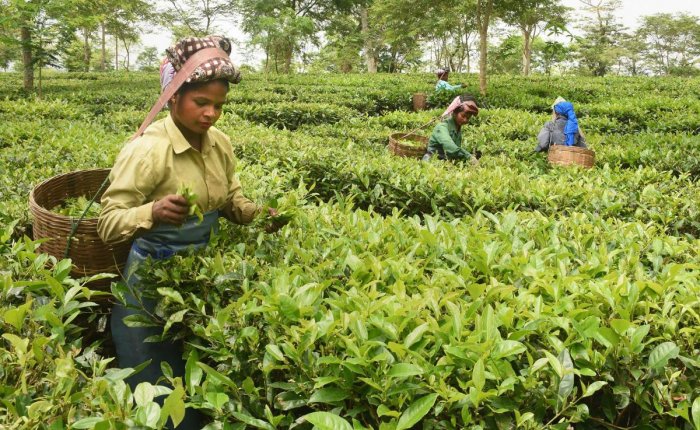
Sri Lanka’s ban on chemical fertilisers aggravates food shortages
The move has added to the burden of a nation already reeling under an economic contraction and decline in tourism earnings

An ill-advised ban on the use of chemical fertilisers and pesticides, combined with pandemic-induced contraction of the economy and decline in export and tourism earnings, has compelled Sri Lanka to effectively place itself under a state of emergency.
The Sri Lankan rupee has fallen, inflation has risen and food prices have hiked. The emergency regulations were promulgated under the Public Safety Ordinance on the supply of essential goods at midnight on August 30.
The government has appointed a former army general as commissioner of essential services to seize stocks held by traders with the intention of taming prices.
Economic blows
Tourist earnings this year were just $26 million between January and July, against $682 million during the same months last year and $3.6 billion in 2019. Workers’ remittances, though, have held steady. Last year they sent home $7.1 billion, slightly more than in 2019. Export earnings declined by $2 billion last year from $12 billion in 2019. A fall in exports of textiles and garments accounted for half of that decline.
The Sri Lankan rupee has depreciated by 11% since last September. Official reserves were enough to finance 2.6 months of imports in June, from 4.2 months in December.
Headline inflation in July was 6.8% higher than in July 2020. Food prices have soared. According to the central bank, Samba rice was selling for Sri Lankan Rs 148.60 a kg (₹55.39), nearly 52% higher than a year ago. Nadu rice was 24% up per kg.
Also read: India allows import of GM soy meal; will GM soybean cultivation follow?
While restrictions on movement to contain the raging COVID epidemic have taken a toll of the economy, the government aggravated the crisis by deciding to completely ban the use of chemicals in agriculture at a cabinet meeting on April 29.
Behind the ban
While announcing the ban, Sri Lankan President Gotabaya Rajapaksa said he was abiding by the ‘Vistas of Prosperity and Splendour’ National Policy Framework. The document admitted that the use of chemical fertilisers has led to better harvests but has also contaminated lakes, canals and groundwater.
The health sector, the President said, had pointed out that chemical fertilisers have triggered a number of non-communicable diseases including chronic kidney disease (CKD). To be healthy and productive, people must have the right to access non-toxic and balanced diets, Rajapaksa said.
Sri Lanka imported chemical fertilisers worth $400 million a year. With the ban, it would not only save dollars but could also become the world’s first organic-only state.
Agricultural scientists had criticised the decision. Writing in The Sunday Times in May, Saman Dharmakeethi had predicted it would cause loss of forests and a food crisis. The proponents of organic agriculture said that in the long run there would be no loss of yield and even an increase in productivity as compared to chemical agriculture. The professor disagreed.
Yield reductions
Three scientifically rigorous meta-analyses, he said, of organic versus conventional crop yield comparisons published in the last few years, showed yield reductions across all crops of about 10-25% in organic agriculture. Dharmakeerthi is professor of soil fertility and plant nutrition at the faculty of agriculture, University of Peradeniya in the city of Kandy.
The professor said Sri Lanka produces 3,500 tonnes of municipal organic waste daily. This can yield about 3 million tonnes of compost a year. Organic paddy alone would require nearly 4 million tonnes of compost at 5 tonnes per hectare. For tea plantations, the annual requirement is 3 million tonnes. Currently, municipal councils and producers registered with the Department of Agriculture produce 0.22 million tonnes. So there would be a huge step up in organic fertiliser production, he said, to avert a disruption in agricultural production.
It is important to place in context the role of compost or farm yard manure (FYM). They are rich in micro-nutrients. They improve the texture of soil and its water retention capacity. They also nurture beneficial soil microbes. So FYM has to be used in conjunction with chemical fertilisers to provide high-yielding plants the nutrients they need.
The Indian Institute of Farm System Research at Modipuram near Delhi says FYM has just 0.5% nitrogen, up to 0.4% phosphorus, and 0.3% potassium. In comparison, urea has 46% nitrogen, single superphosphate is 16% phosphorous and muriate of potash 60% potassium.
Plantation crop exports
According to reports, Sri Lankan tea production is likely to suffer owing to the government’s policy. The country produces about 300 million kg of tea. It earns about $1.25 billion from tea exports. The output of pepper, cinnamon, vegetables and staples like rice is expected to be crimped. Sri Lankan farmers have been protesting the ban. On August 3, the government allowed imports of certain fertilisers for select users but denied a reversal of policy.
Organic agriculture being low-yielding is land intensive. The crops may be resilient but they cannot feed a growing population when cultivable land is shrinking.
Ideologically motivated farming fads imposed by dictatorial regimes have wreaked havoc. In China, the collectivisation of agriculture and the Great Leap Forward in the late 1950s to match Britain in steel production (by melting pots and pans in barnyard furnaces) caused famine and deaths on an industrial scale.
In Soviet Russia, Tromfin Lysenko promoted the idea that environment shapes plants and animals. In charge of agriculture under Stalin in the 1930s, he had a disdain for genetics and also forbade the use of fertilisers and pesticides with catastrophic results.
In India, we should be wary of cranky agricultural ideas like Zero Budget Natural Farming and chemical-free agriculture that have received official backing.

